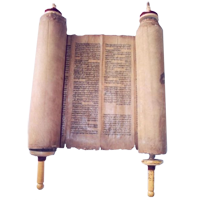- Montreal, Canada
- don@saintesecritures.org

Chapter 26 29 And Paul said, I would to God, that not only thou, but also all that hear me this day, were both almost, and altogether such as I am, except these bonds.30 And when he had thus spoken, the king rose up, and the governor, and Bernice, and they that sat with them:31 And when they were gone aside, they talked between themselves, saying, This man doeth nothing worthy of death or of bonds.32 Then said Agrippa unto Festus, This man might have been set at liberty, if he had not appealed unto Caesar.
Chapter 27 1 And when it was determined that we should sail into Italy, they delivered Paul and certain other prisoners unto one named Julius, a centurion of Augustus' band.2 And entering into a ship of Adramyttium, we launched, meaning to sail by the coasts of Asia; one Aristarchus, a Macedonian of Thessalonica, being with us.3 And the next day we touched at Sidon. And Julius courteously entreated Paul, and gave him liberty to go unto his friends to refresh himself.4 And when we had launched from thence, we sailed under Cyprus, because the winds were contrary.5 And when we had sailed over the sea of Cilicia and Pamphylia, we came to Myra, a city of Lycia.6 And there the centurion found a ship of Alexandria sailing into Italy; and he put us therein.7 And when we had sailed slowly many days, and scarce were come over against Cnidus, the wind not suffering us, we sailed under Crete, over against Salmone;8 And, hardly passing it, came unto a place which is called The fair havens; nigh whereunto was the city of Lasea.9 Now when much time was spent, and when sailing was now dangerous, because the fast was now already past, Paul admonished them,10 And said unto them, Sirs, I perceive that this voyage will be with hurt and much damage, not only of the lading and ship, but also of our lives.11 Nevertheless the centurion believed the master and the owner of the ship, more than those things which were spoken by Paul.12 And because the haven was not commodious to winter in, the more part advised to depart thence also, if by any means they might attain to Phenice, and there to winter; which is an haven of Crete, and lieth toward the south west and north west.13 And when the south wind blew softly, supposing that they had obtained their purpose, loosing thence, they sailed close by Crete.14 But not long after there arose against it a tempestuous wind, called Euroclydon.15 And when the ship was caught, and could not bear up into the wind, we let her drive.16 And running under a certain island which is called Clauda, we had much work to come by the boat:





